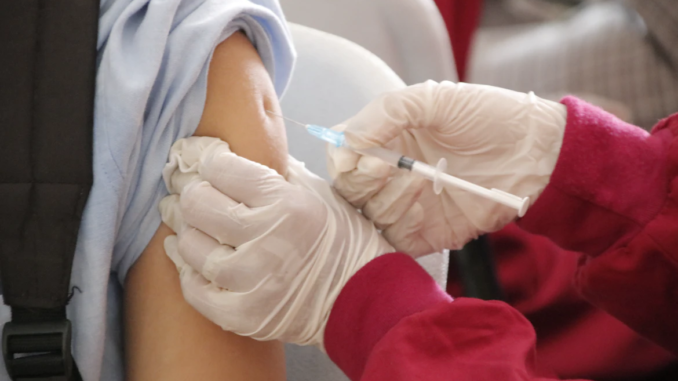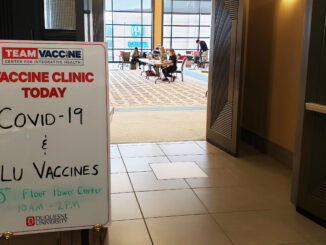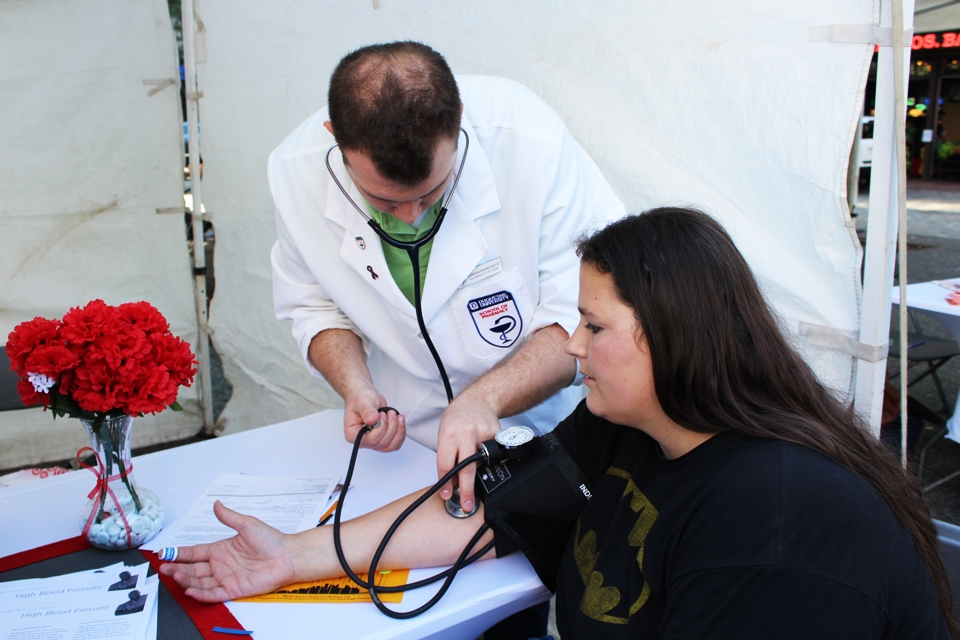
by Mohammad Sajjad | staff columnist
March 24, 2022
Think about the last time you received a vaccine. Chances are that it was administered by either a pharmacist or another pharmacy employee. With 90% of Americans living within five miles of a pharmacy, according to the Centers for Disease Control and Prevention, pharmacies have proven to be some of the most accessible health and wellness centers in the country in terms of immunizations.
Due to the pandemic, pharmacists, pharmacy technicians and pharmacy student interns in Pennsylvania have had the opportunity to vaccinate patients as young as 3 years old through federal and state-issued emergency waivers.
Prior to the pandemic, in the pharmacy, only patients above the age of 18 could receive vaccinations, with the exception of the flu vaccine for patients above the age of 9. Additionally, the only professional in the pharmacy who was allowed to administer these vaccines was the pharmacist.
Unfortunately, the pandemic waivers are set to expire at the end of March, which means that many pediatric patients will lose convenient access to life-saving vaccines. State senators and representatives have drafted House Bill 1535 (HB 1535) and Senate Bill 511 (SB 511), which would give pharmacy employees full vaccination authority, but the bills have been unable to reach the floor for a vote.
Pharmacists, technicians and interns in Pennsylvania should be granted full authority to vaccinate patients above the age of 3. Not only are they fully capable of doing so, but granting them this authority will improve patient outcomes and decrease health care costs.
Pharmacy employees undergo extensive training to be able to vaccinate patients. Through the American Pharmacists Association (APhA), they undergo accredited training, which includes learning hands-on injection techniques and how to recognize and treat emergency reactions to vaccines. Depending on the pharmacy, there may be additional training required for employees.
Aside from being qualified to vaccinate patients, giving pharmacy employees full authority to immunize will have profound effects on the health care system.
Primary care in the United States is at a crossroads right now. According to the Association of American Medical Colleges (AAMC), there will be a projected shortage of nearly 50,000 primary care physicians in the U.S. by 2034, which means many people may lose access to vaccines.
Having the opportunity for more patients to receive vaccines at their local pharmacy will ensure people won’t lose access to this critical preventative measure, as vaccines have shown to be effective in decreasing hospitalizations and preventing transmission of viruses. While patients are at the pharmacy receiving their vaccines, primary care physicians will have the opportunity to focus their time and energy on more complex cases.
Decreasing hospitalizations and preventing transmission of viruses will ultimately result in a decrease in healthcare spending as well. The $40 that is spent on giving a vaccine to a patient is considerably less than the thousands of dollars spent on treating a patient with Covid-19 in the hospital, for example.
Speaking of cost, it will cost even less for a pharmacist to administer a vaccine, compared to their physician colleagues. According to the Pacific Research Institute, the average direct medical costs paid per adult vaccination were 16 to 26% lower in pharmacies compared to physician practices.
It is especially important that technicians and pharmacy student interns continue to have full authority in terms of vaccinating patients. Pharmacists have a lot on their plates as it is, from checking prescriptions to counseling patients on medications. Allowing technicians and pharmacy student interns to continue to have full authority to immunize will lessen the burden of pharmacists and allow them to focus more on clinical duties.
Pharmacy employees have shown their impact when it comes to vaccinating patients. According to the CDC, as of March 17, more than 234 million doses of the Covid vaccine have been administered and reported by retail pharmacies across the United States.
Through the School of Pharmacy, I had the opportunity earlier this month to speak to state legislators in Harrisburg on the importance of granting full vaccinating authority to pharmacy employees. While it was a memorable experience, more work needs to be done on our part.
Contact your local representative and voice your support in putting HB 1535 and SB 511 on the agenda to vote them out of their respective committees and onto the floor. It’s about time we let our pharmacy employees practice to their full potential.




